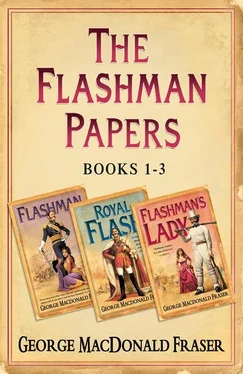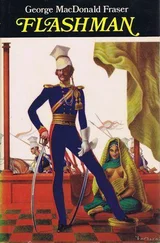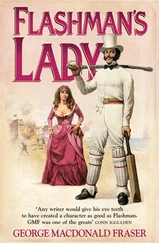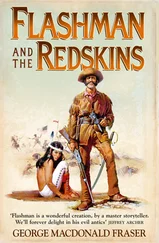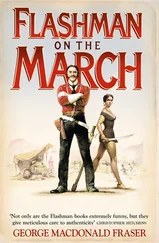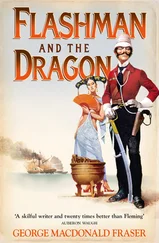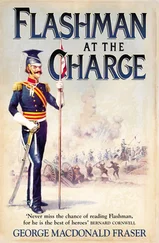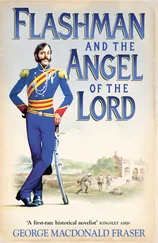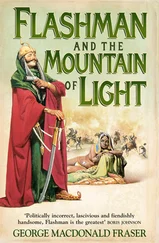THE FLASHMAN PAPERS BOOKS 1–3
FLASHMAN ROYAL FLASH FLASHMAN’S LADY
GEORGE MACDONALD FRASER

Cover
Title Page THE FLASHMAN PAPERS BOOKS 1–3 FLASHMAN ROYAL FLASH FLASHMAN’S LADY GEORGE MACDONALD FRASER
Flashman
Royal Flash
Flashman’s Lady
About the Author
Also by George MacDonald Fraser
Copyright
About the Publisher
Flashman Royal Flash Flashman’s Lady About the Author Also by George MacDonald Fraser Copyright About the Publisher
From The Flashman Papers , 1839–42
Edited and Arranged by
GEORGE MACDONALD FRASER

Dedication Dedication Explanatory Note Map Chapter 1 Chapter 2 Chapter 3 Chapter 4 Chapter 5 Chapter 6 Chapter 7 Chapter 8 Chapter 9 Chapter 10 Chapter 11 Chapter 12 Chapter 13 Notes Glossary Copyright
FOR KATH
Cover Flashman Royal Flash Flashman’s Lady About the Author Also by George MacDonald Fraser Copyright About the Publisher
Title Page FLASHMAN From The Flashman Papers , 1839–42
Dedication Dedication Dedication Explanatory Note Map Chapter 1 Chapter 2 Chapter 3 Chapter 4 Chapter 5 Chapter 6 Chapter 7 Chapter 8 Chapter 9 Chapter 10 Chapter 11 Chapter 12 Chapter 13 Notes Glossary Copyright FOR KATH
Explanatory Note Explanatory Note The great mass of manuscript known as the Flashman Papers was discovered during a sale of household furniture at Ashby, Leicestershire, in 1965. The papers were subsequently claimed by Mr Paget Morrison, of Durban, South Africa, the nearest known living relative of their author. A point of major literary interest about the papers is that they clearly identify Flashman, the school bully of Thomas Hughes’ Tom Broun’s Schooldays , with the celebrated Victorian soldier of the same name. The papers are, in fact, Harry Flashman’s personal memoirs from the day of his expulsion from Rugby School in the late 1830s to the early years of the present century. He appears to have written them some time between 1900 and 1905, when he must have been over eighty. It is possible that he dictated them. The papers, which had apparently lain untouched for fifty years, in a tea chest, until they were found in the Ashby saleroom, were carefully wrapped in oilskin covers. From correspondence found in the first packet, it is evident that their original discovery by his relatives in 1915 after the great soldier’s death caused considerable consternation; they seem to have been unanimously against publication of their kinsman’s autobiography – one can readily understand why – and the only wonder is that the manuscript was not destroyed. Fortunately, it was preserved, and what follows is the content of the first packet, covering Flashman’s early adventures. I have no reason to doubt that it is a completely truthful account; where Flashman touches on historical fact he is almost invariably accurate, and readers can judge whether he is to be believed or not on more personal matters. Mr Paget Morrison, knowing of my interest in this and related subjects, asked me to edit the papers. Beyond correcting some minor spelling errors, however, there has been no editing to do. Flashman had a better sense of narrative than I have, and I have confined myself to the addition of a few historical notes. The quotation from Tom Brown’s Schooldays was pasted to the top page of the first packet; it had evidently been cut from the original edition of 1856. G. M. F.
Map Map
Chapter 1
Chapter 2
Chapter 3
Chapter 4
Chapter 5
Chapter 6
Chapter 7
Chapter 8
Chapter 9
Chapter 10
Chapter 11
Chapter 12
Chapter 13
Notes
Glossary
Copyright
The great mass of manuscript known as the Flashman Papers was discovered during a sale of household furniture at Ashby, Leicestershire, in 1965. The papers were subsequently claimed by Mr Paget Morrison, of Durban, South Africa, the nearest known living relative of their author.
A point of major literary interest about the papers is that they clearly identify Flashman, the school bully of Thomas Hughes’ Tom Broun’s Schooldays , with the celebrated Victorian soldier of the same name. The papers are, in fact, Harry Flashman’s personal memoirs from the day of his expulsion from Rugby School in the late 1830s to the early years of the present century. He appears to have written them some time between 1900 and 1905, when he must have been over eighty. It is possible that he dictated them.
The papers, which had apparently lain untouched for fifty years, in a tea chest, until they were found in the Ashby saleroom, were carefully wrapped in oilskin covers. From correspondence found in the first packet, it is evident that their original discovery by his relatives in 1915 after the great soldier’s death caused considerable consternation; they seem to have been unanimously against publication of their kinsman’s autobiography – one can readily understand why – and the only wonder is that the manuscript was not destroyed.
Fortunately, it was preserved, and what follows is the content of the first packet, covering Flashman’s early adventures. I have no reason to doubt that it is a completely truthful account; where Flashman touches on historical fact he is almost invariably accurate, and readers can judge whether he is to be believed or not on more personal matters.
Mr Paget Morrison, knowing of my interest in this and related subjects, asked me to edit the papers. Beyond correcting some minor spelling errors, however, there has been no editing to do. Flashman had a better sense of narrative than I have, and I have confined myself to the addition of a few historical notes.
The quotation from Tom Brown’s Schooldays was pasted to the top page of the first packet; it had evidently been cut from the original edition of 1856.
G. M. F.
One fine summer evening Flashman had been regaling himself on gin-punch, at Brownsover; and, having exceeded his usual limits, started home uproarious. He fell in with a friend or two coming back from bathing, proposed a glass of beer, to which they assented, the weather being hot, and they thirsty souls, and unaware of the quantity of drink which Flashman had already on board. The short result was, that Flashy became beastly drunk. They tried to get him along, but couldn’t; so they chartered a hurdle and two men to carry him. One of the masters came upon them, and they naturally enough fled. The flight of the rest excited the master’s suspicions, and the good angel of the fags incited him to examine the freight, and, after examination, to convoy the hurdle himself up to the School-house; and the Doctor, who had long had his eye on Flashman, arranged for his withdrawal next morning.
– THOMAS HUGHES, Tom Brown’s Schooldays.
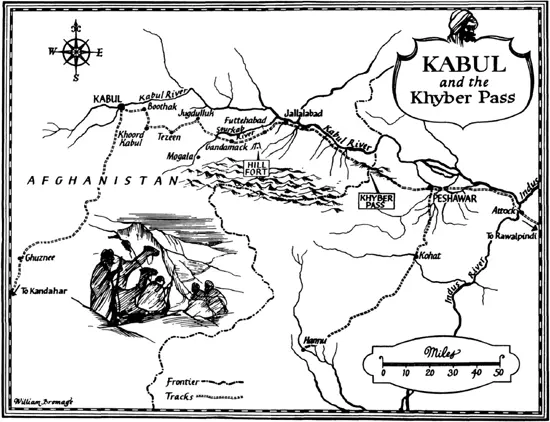 Читать дальше
Читать дальше
